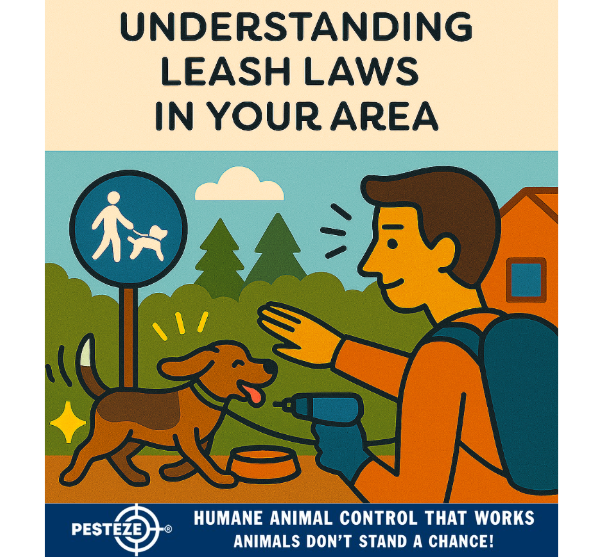UNDERSTANDING LEASH LAWS IN YOUR AREA

UNDERSTANDING LEASH LAWS IN YOUR AREA
SUMMARY
Leash laws are essential for maintaining public safety, protecting pets, and ensuring responsible ownership. These regulations vary widely by state, city, and even specific parks or neighborhoods. Understanding your local leash laws helps you avoid fines, prevent accidents, and foster a respectful community environment. This guide breaks down the key elements of leash laws, how to stay compliant, and what exceptions may apply in your area.
FEATURES
-
Know Your Local Ordinances: Leash laws differ by city, county, and state—always check your local regulations.
-
Understand Public Space Rules: Parks, sidewalks, and trails often have specific leash requirements.
-
Recognize Exceptions and Off-Leash Zones: Learn where dogs may legally roam free, such as designated dog parks.
-
Comply with Dangerous Dog Regulations: Special rules apply to aggressive or previously cited pets.
-
Avoid Legal Penalties: Non-compliance can result in fines, citations, or liability for damages.
-
Support Community Safety: Leash laws help prevent dog bites, traffic accidents, and wildlife disturbances.
GUIDE DESCRIPTION
Leash laws are a cornerstone of responsible pet ownership and community safety. While the general principle is simple—keep your dog leashed in public—actual regulations can vary significantly depending on where you live. This guide helps you understand and comply with leash laws in your area.
Start by researching your local ordinances. Some states enforce statewide leash laws, while others delegate authority to cities and counties. For example, Georgia does not have a statewide leash law, but municipalities like Atlanta or Big Creek may have specific rules.
Public spaces often have their own leash requirements. Parks, sidewalks, beaches, and hiking trails may require dogs to be leashed at all times, or only during certain hours. Always look for posted signs and check online resources before heading out.
Exceptions exist, such as designated off-leash dog parks or private property. However, even in these areas, owners must maintain control and ensure their pets do not pose a threat to others.
If your dog has been labeled dangerous or aggressive, stricter rules apply. These may include mandatory muzzling, confinement, registration, and liability insurance.
Failing to follow leash laws can lead to fines, citations, or legal responsibility if your pet causes harm. Staying informed helps you avoid these consequences and promotes a safer environment for everyone.
Ultimately, leash laws protect not just people and pets, but also wildlife and public property. By understanding and respecting these rules, you contribute to a more harmonious and responsible pet-friendly community.
- Amy Chang


Comments 0